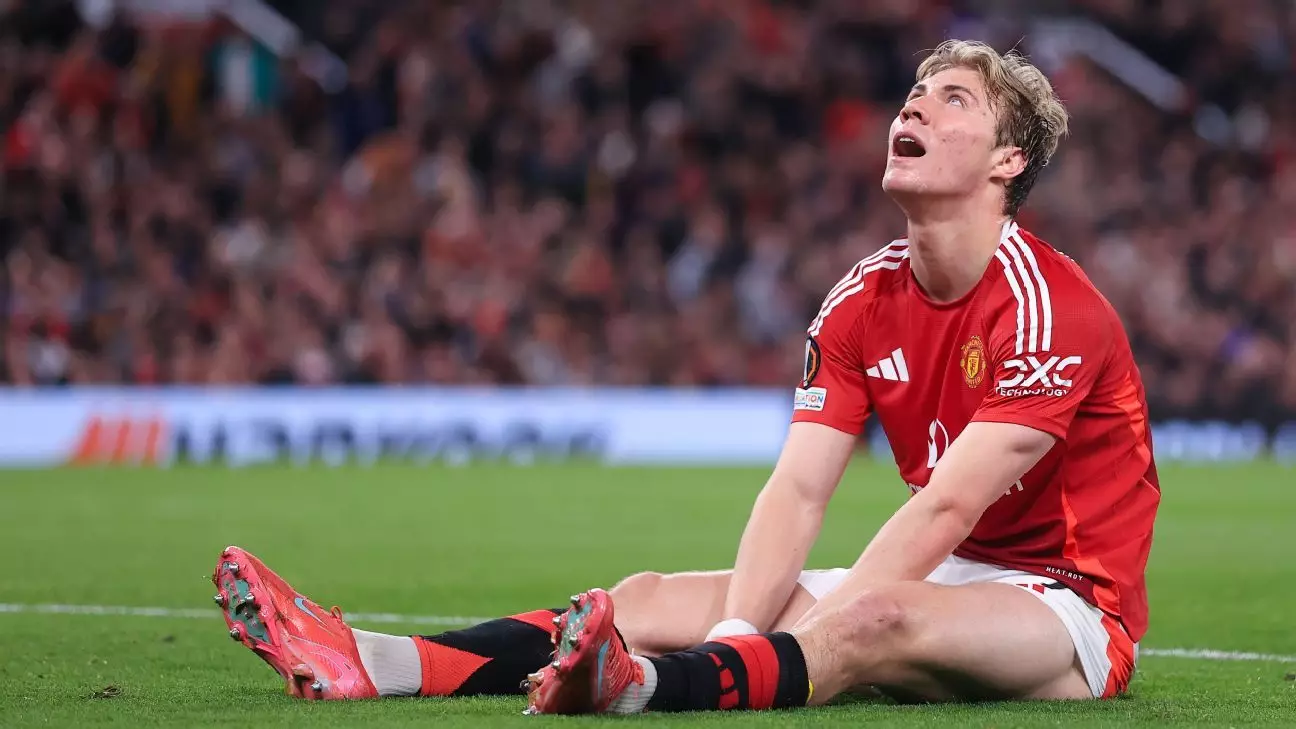In the ever-shifting landscape of football recruitment, the presence of release clauses in player contracts has emerged as a game changer for clubs. Historically, figures within Manchester United have emphasized how beneficial these clauses can be. Ed Woodward, the former executive vice chairman, exemplified this thinking, especially during his pursuit of marquee talents. Antoine Griezmann’s case in 2017 is illustrative; with a fixed buyout figure of €100 million, it provided a straightforward approach to securing a top-tier player, devoid of the convoluted negotiations frequently seen in football transfers.
The desire to have clarity in transfer dealings is palpable, and the recent agreement to bring Matheus Cunha to Old Trafford showcases a strategic pivot in this direction. Triggering the £62.5 million release clause demonstrates a shift back towards a more pragmatic approach. Unlike Griezmann, Cunha fits neatly into the system envisaged by United’s coaching staff, presenting a dual advantage: on-field integration and straightforward acquisition.
The Importance of Tactical Fit
A key deciding factor in any transfer is a player’s compatibility with the coach’s system. Ruben Amorim, the current manager, recognized Cunha’s successful track record in a similar tactical framework during his time at Wolverhampton. The Brazilian’s performance—accounting for 15 goals last season and 12 the previous year—reflects not just individual talent but also his potential to elevate the squad’s overall performance.
United’s challenges in recent seasons have often stemmed from misaligned player purchases that didn’t consider system fit. This oversight can lead to ineffective performances and wasted funds. If Manchester United wants to ascend back to elite status, prioritizing players who seamlessly blend into the existing tactical setup must be a foundational strategy.
Avoiding Overvaluations: A New Era?
Prior to the appointment of Omar Berrada and Matt Hargreaves, United’s transfer dealings under Woodward were often riddled with inflated “United tax” valuations. Rival clubs would frequently capitalize on United’s status and history to demand exorbitant fees. Lessons drawn from past blunders should inform a new approach—one where the club takes a firmer stand against perceived exploitation.
Last summer’s strategic retreat from negotiations with Everton for Jarrad Branthwaite, based on valuation discrepancies, signals a newfound assertiveness in the market. It’s a refreshing change after prior frenzies where panic-induced deals led to substantial outlays for players like Casemiro and Antony, both seen as financially imprudent in retrospect.
The Fine Balance of Financial Responsibility
As United aims to bounce back from a historically disappointing domestic campaign, a pivotal element of their approach involves financial prudence. The creation of “headroom” for new signings through effective wage management and cost-cutting measures is commendable. The redundancy program spearheaded by co-owner Sir Jim Ratcliffe further underlines the commitment to a leaner operation.
This transition towards disciplined spending will be crucial, especially with the absence of European football next season. The allure of top talent remains but must be balanced with the club’s financial constraints. Berrada, Hargreaves, and their team are acutely aware that any potential signings must meet defined budget parameters. Bryan Mbeumo, for example, is an enticing prospect, but will only be pursued if his valuation aligns with the club’s rigorous financial framework.
Success through Strategic Reluctance
While ambition should drive the recruitment process, the desire for success must be tempered by caution. The focus is not merely on acquiring talent but on making smart investments that build a cohesive and competitive squad. The club’s leadership is prepared to pivot away from potential targets if the perceived value outweighs the risk.
United’s scouting efforts are exploring multiple alternatives, including players from lesser-rated clubs, as they aim to fill gaps without succumbing to reckless spending. The likes of Antoine Semenyo and Eberechi Eze represent a calculated shift in focus that could yield commendable results when club direction shifts towards smarter, more sustainable recruitment.
It’s imperative for Manchester United to emerge from a turbulent phase with a clear vision of success. Drawing lessons from the past while embracing innovative, strategic practices in player acquisition will not just mend a fractured squad, but might also foster an era of resurgence in performances both on and off the pitch. Football, after all, is as much about the minds behind the scenes as it is about the players on the field.

